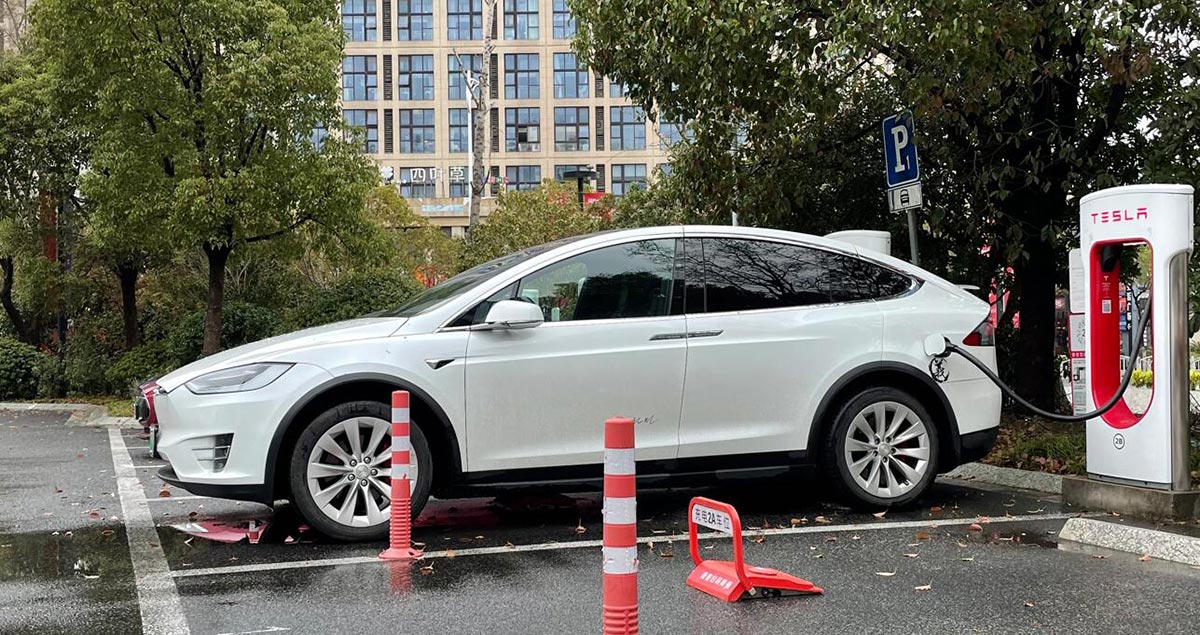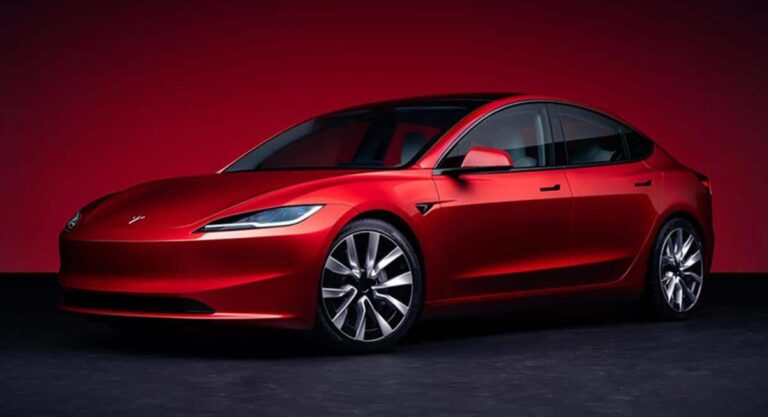These vehicles may fail to give an alert when the brake fluid level is low, which in extreme cases can affect the vehicle's braking.
(Image credit: CnEVPost)
Tesla (NASDAQ: TSLA) is recalling thousands of Model X electric vehicles in China, and will offer fixes with a software update.
Tesla is recalling a total of 4,787 imported Model X vehicles with production dates between October 13, 2021 and September 28, 2023, starting October 20, according to an announcement today on the website of China's State Administration for Market Regulation (SAMR).
Vehicles covered by the recall may fail to alert when the brake fluid level is low due to insufficient calibration range of the brake fluid level sensor signal received by the vehicle controller.
In extreme cases, this could affect the braking of the vehicle, increasing the risk of a crash and posing a safety hazard, the announcement said.
Tesla will upgrade the software of the recalled vehicles to version 2023.32.9 or later free of charge via OTA (over-the-air) technology to correct the calibration range of the signals received by the vehicle controller to ensure that an alert can be accurately issued when the brake fluid level is low.
For vehicles that cannot be recalled through OTA technology, Tesla will contact users to upgrade the software for the vehicles free of charge.
This is Tesla's latest recall in China, where the company announced on August 4 that it was recalling a total of 271 imported Model S and Model X vehicles due to seat belt and camera installation issues.
In May, Tesla recalled more than 1.1 million vehicles in China for issues including regenerative braking strategies, and offered fixes with an OTA upgrade.
Tesla has a factory in Shanghai that produces the Model 3 and Model Y. The higher-priced Model S and Model X are not produced in China.
Giga Shanghai's current annual production capacity of more than 950,000 vehicles is Tesla's largest in the world, according to the US EV maker's third-quarter financial report released earlier this week.
The Shanghai plant began operations at the end of 2019 and started deliveries of the locally produced Model 3 in January 2020 and the locally produced Model Y in January 2021.
In the January-September period, Tesla delivered 433,729 vehicles in China, up 36.33 percent year-on-year, according to the China Passenger Car Association (CPCA).

